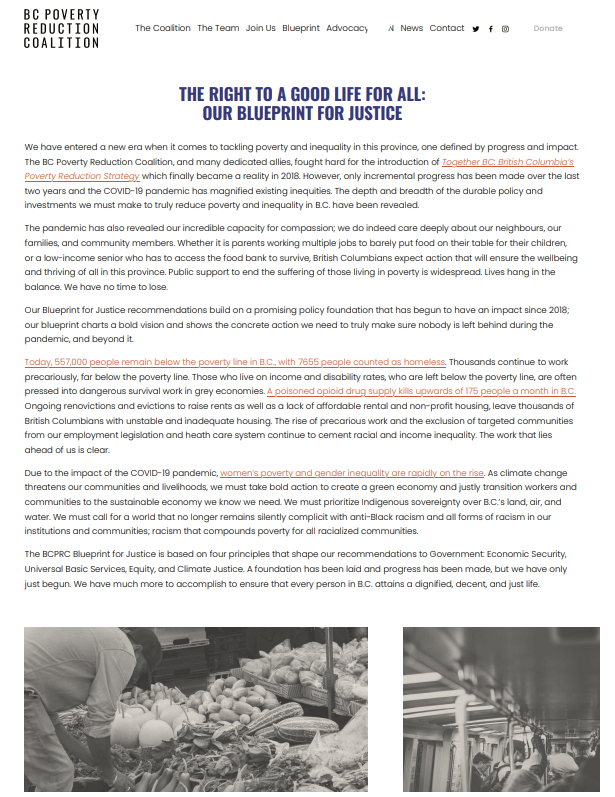6 search results
for
Indigenous Peoples
Climate justice
Recommendation 7: Prioritize UNDRIP, Indigenous sovereignty, and gender equality in all climate change related policy planning.-
Category and theme:
Groups affected:
Equity
Recommendation 10: Address the needs of those most likely to be living in poverty and impacted by intersecting colonialism, racism, ableism, heterosexism, transphobia, and gender inequality.-
Category and theme:
Equity
Recommendation 11: Implement all 46 articles of the United Nations Declaration on the Rights of Indigenous People.-
Category and theme:
Groups affected:
Equity
Recommendation 12: Address the unique needs of systemically disadvantaged groups to access all services, including targeted measures to remove barriers to access and tailored supports.-
Category and theme:
Equity
Recommendation 22: Implementation of all recommendations in the following reports: Truth and Reconciliation Commission of Canada: Call to Action, and Reclaiming Power and Place: The Final Report of the National Inquiry into Missing and Murdered Indigenous Women and Girls.-
Category and theme:
Groups affected:
Universal basic services
Information
Recommendation 37: Implement the Indigenous Framework for Innovation and Technology to create sustainable access to digital and connected technologies for all 203 Indigenous communities in B.C., both on and off-reserve.-
Category and theme:
